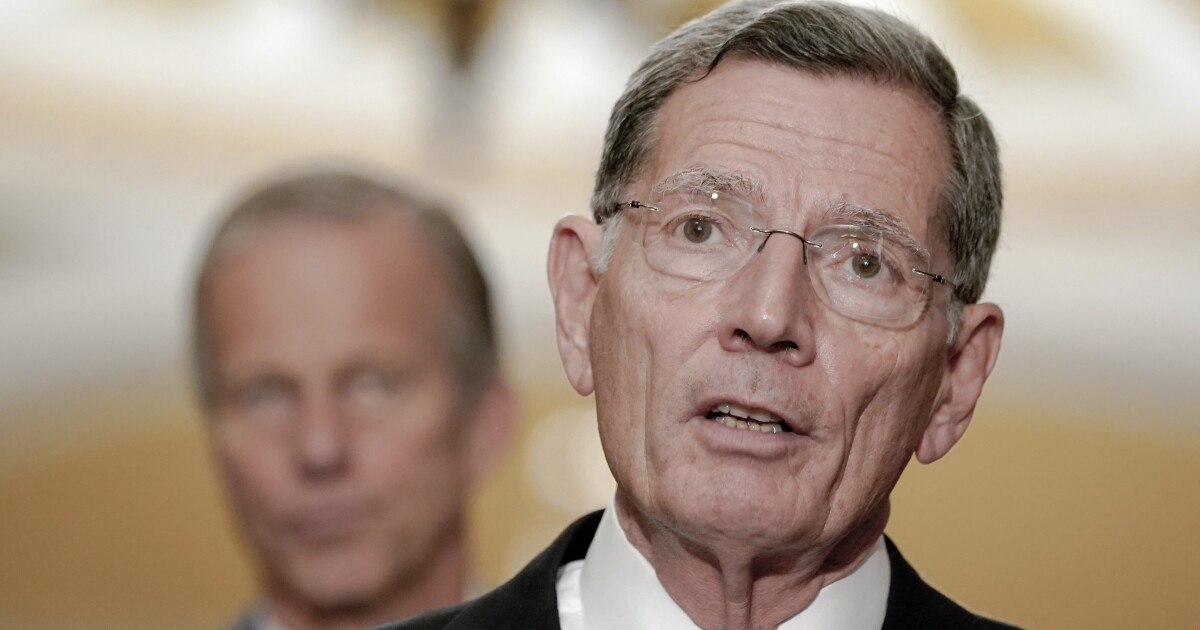

Sen. John Barrasso (R-WY) is asking Interior Secretary Deb Haaland to keep national parks and other public lands open in the event of a government shutdown — and use a method that was deemed illegal by a government watchdog agency during the Trump administration.
In a new letter sent on Wednesday, the ranking member on the Senate Energy and Natural Resources Committee called on the Interior Department to tap into visitor fees, collected under the Federal Lands Recreation Enhancement Act, to keep parks open if appropriations run short after a Sept. 30 government funding deadline. Barrasso pointed to the December 2018 shutdown as a precedent, when then-acting Interior Secretary David Bernhardt directed the agency to tap into the fees to keep national parks running.
SEVEN UNANSWERED QUESTIONS FOR MERRICK GARLAND ABOUT THE BIDEN INVESTIGATIONS
“As Secretary of the Interior, it is your responsibility to provide opportunities for people to access our parks in a way that ensures visitor health and safety, as well as providing the same opportunity for future generations,” Barrasso said in the letter. “To ensure that you are protecting public access to our public places and preventing any irreversible environmental degradation during a shutdown, I ask that you keep the parks and public lands open and accessible.”
During the weekslong shutdown between December 2018 and January 2019, the National Park Service tapped into the FLREA funds to cover costs associated with visitor services and law enforcement. Although the parks did remain open, the nonpartisan Government Accountability Office released a legal opinion that found Trump administration officials had violated the law by using fees that were designed to support visitor services, fund operations, and keep basic maintenance.
According to the GAO’s 17-page opinion, the approach violated FLREA as well as the Antideficiency Act, which restricts how agencies can redirect money without congressional approval.
While the GAO urged Interior to report the violation to Congress and list out actions it would need to take to prevent recurring violations, no charges were ever issued. The agency warned that any future violations would be considered “knowing and willful” and punishable by up to $5,000 and two years in prison.
The watchdog is an independent agency that serves as an arm of Congress, but due to the separation of powers doctrine, a legal opinion issued by an agency of the legislative branch does not bind the executive branch.
During that time, Interior rejected the GAO’s legal analysis, calling it “erroneous” and asserting that the department “acted well within its legal authority,” according to then-spokeswoman Melissa Brown. The Office of Budget and Management agreed with the Interior’s interpretation of the scope of FLREA authority, according to a February 2020 letter sent between the two agencies.
CLICK HERE TO READ MORE FROM THE WASHINGTON EXAMINER
The report was requested by Rep. Betty McCollum (D-MN) and then-Sen. Tom Udall (D-NM), top Democrats on the House and Senate appropriations panels overseeing Interior. The pair hailed the GAO’s findings, with Udall calling for consequences for the violation.
Barrasso is also asking for further information from the department on current accounting of FLREA funds available for basic visitor services in the event of a government shutdown, a contingency plan to fund park services if appropriations run out, and a list of parks that do not charge fees or have insufficient available balances, along with a proposed expenditure plan to address the funding shortfall.
The Interior Department declined to comment.





